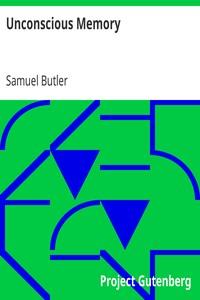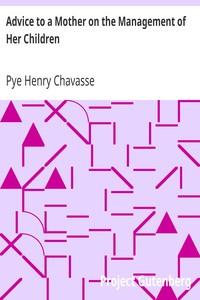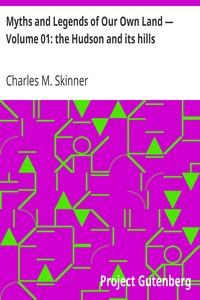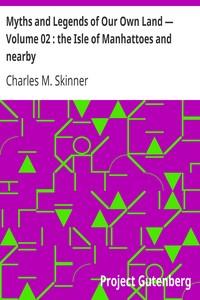|
|
Read this ebook for free! No credit card needed, absolutely nothing to pay.Words: 79142 in 16 pages
This is an ebook sharing website. You can read the uploaded ebooks for free here. No credit cards needed, nothing to pay. If you want to own a digital copy of the ebook, or want to read offline with your favorite ebook-reader, then you can choose to buy and download the ebook.

: Unconscious Memory by Butler Samuel - Evolution; Memory; Subconsciousness Psychology@FreeBooksTue 06 Jun, 2023 R. A. STREATFEILD. IN reviewing Samuel Butler's works, "Unconscious Memory" gives us an invaluable lead; for it tells us how the author came to write the Book of the Machines in "Erewhon" , with its foreshadowing of the later theory, "Life and Habit," , "Evolution, Old and New" , as well as "Unconscious Memory" itself. His fourth book on biological theory was "Luck? or Cunning?" . Of all these, "LIFE AND HABIT" is the most important, the main building to which the other writings are buttresses or, at most, annexes. Its teaching has been summarised in "Unconscious Memory" in four main principles: " the oneness of personality between parent and offspring; memory on the part of the offspring of certain actions which it did when in the persons of its forefathers; the latency of that memory until it is rekindled by a recurrence of the associated ideas; the unconsciousness with which habitual actions come to be performed." To these we must add a fifth: the purposiveness of the actions of living beings, as of the machines which they make or select. It is easy, looking back, to see why "Life and Habit" so missed its mark. Charles Darwin's presentation of the evolution theory had, for the first time, rendered it possible for a "sound naturalist" to accept the doctrine of common descent with divergence; and so given a real meaning to the term "natural relationship," which had forced itself upon the older naturalists, despite their belief in special and independent creations. The immediate aim of the naturalists of the day was now to fill up the gaps in their knowledge, so as to strengthen the fabric of a unified biology. For this purpose they found their actual scientific equipment so inadequate that they were fully occupied in inventing fresh technique, and working therewith at facts--save a few critics, such as St. George Mivart, who was regarded as negligible, since he evidently held a brief for a party standing outside the scientific world. Butler introduced himself as what we now call "The Man in the Street," far too bare of scientific clothing to satisfy the Mrs. Grundy of the domain: lacking all recognised tools of science and all sense of the difficulties in his way, he proceeded to tackle the problems of science with little save the deft pen of the literary expert in his hand. His very failure to appreciate the difficulties gave greater power to his work--much as Tartarin of Tarascon ascended the Jungfrau and faced successfully all dangers of Alpine travel, so long as he believed them to be the mere "blagues de r?clame" of the wily Swiss host. His brilliant qualities of style and irony themselves told heavily against him. Was he not already known for having written the most trenchant satire that had appeared since "Gulliver's Travels"? Had he not sneered therein at the very foundations of society, and followed up its success by a pseudo-biography that had taken in the "Record" and the "Rock"? In "Life and Habit," at the very start, he goes out of his way to heap scorn at the respected names of Marcus Aurelius, Lord Bacon, Goethe, Arnold of Rugby, and Dr. W. B. Carpenter. He expressed the lowest opinion of the Fellows of the Royal Society. To him the professional man of science, with self-conscious knowledge for his ideal and aim, was a medicine-man, priest, augur--useful, perhaps, in his way, but to be carefully watched by all who value freedom of thought and person, lest with opportunity he develop into a persecutor of the worst type. Not content with blackguarding the audience to whom his work should most appeal, he went on to depreciate that work itself and its author in his finest vein of irony. Having argued that our best and highest knowledge is that of whose possession we are most ignorant, he proceeds: "Above all, let no unwary reader do me the injustice of believing in me. In that I write at all I am among the damned." His writing of "EVOLUTION, OLD AND NEW" was due to his conviction that scant justice had been done by Charles Darwin and Alfred Wallace and their admirers to the pioneering work of Buffon, Erasmus Darwin, and Lamarck. To repair this he gives a brilliant exposition of what seemed to him the most valuable portion of their teachings on evolution. His analysis of Buffon's true meaning, veiled by the reticences due to the conditions under which he wrote, is as masterly as the English in which he develops it. His sense of wounded justice explains the vigorous polemic which here, as in all his later writings, he carries to the extreme. It is the more unfortunate that Butler's lack of appreciation on these points should have led to the enormous proportion of bitter personal controversy that we find in the remainder of his biological writings. Possibly, as suggested by George Bernard Shaw, his acquaintance and admirer, he was also swayed by philosophical resentment at that banishment of mind from the organic universe, which was generally thought to have been achieved by Charles Darwin's theory. Still, we must remember that this mindless view is not implicit in Charles Darwin's presentment of his own theory, nor was it accepted by him as it has been by so many of his professed disciples. "UNCONSCIOUS MEMORY" .--We have already alluded to an anticipation of Butler's main theses. In 1870 Dr. Ewald Hering, one of the most eminent physiologists of the day, Professor at Vienna, gave an Inaugural Address to the Imperial Royal Academy of Sciences: "Das Ged?chtniss als allgemeine Funktion der organisirter Substanz" . When "Life and Habit" was well advanced, Francis Darwin, at the time a frequent visitor, called Butler's attention to this essay, which he himself only knew from an article in "Nature." Herein Professor E. Ray Lankester had referred to it with admiring sympathy in connection with its further development by Haeckel in a pamphlet entitled "Die Perigenese der Plastidule." We may note, however, that in his collected Essays, "The Advancement of Science" , Sir Ray Lankester, while including this Essay, inserts on the blank page --we had almost written "the white sheet"--at the back of it an apology for having ever advocated the possibility of the transmission of acquired characters. These are the essentials of the book as a contribution to biological philosophy. The closing chapters contain a lucid statement of objections to his theory as they might be put by a rigid necessitarian, and a refutation of that interpretation as applied to human action. In "Unconscious Memory" the allurements of unitary or monistic views have gained the upper hand, and Butler writes :-- I have italicised the last sentence, to show that Butler was more or less conscious of its irreconcilability with much of his most characteristic doctrine. Again, in the closing chapter, Butler writes :-- "We should endeavour to see the so-called inorganic as living in respect of the qualities it has in common with the organic, rather than the organic as non-living in respect of the qualities it has in common with the inorganic." Free books android app tbrJar TBR JAR Read Free books online gutenberg More posts by @FreeBooks
: Official Report of the Exploration of the Queen Charlotte Islands for the Government of British Columbia by Chittenden Newton H - Haida Indians; Queen Charlotte Islands (B.C.)@FreeBooksTue 06 Jun, 2023

: Advice to a Mother on the Management of Her Children by Chavasse Pye Henry - Child care; Children Health and hygiene; Infants Health and hygiene@FreeBooksTue 06 Jun, 2023
|
Terms of Use Stock Market News! © gutenberg.org.in2025 All Rights reserved.






